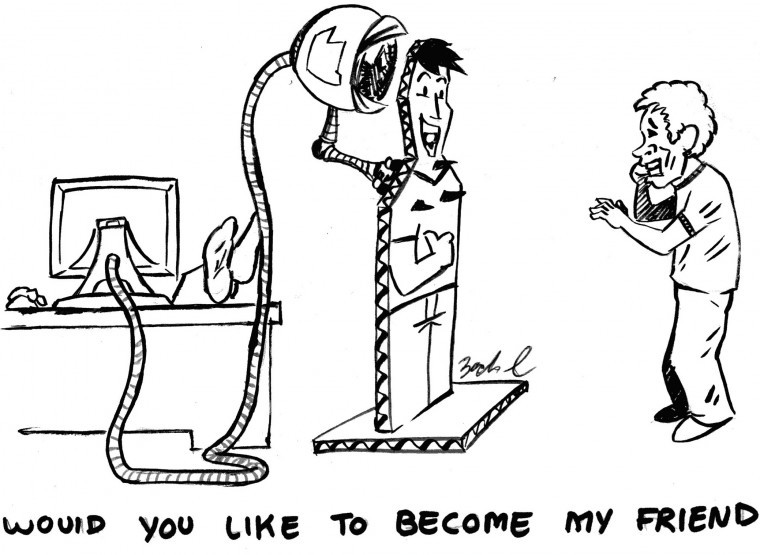The negative effects of being digitally connected
February 21, 2011
We need to have a talk. No, you are going to have to put your cell phone away, and stop refreshing Facebook to see if someone ‘liked’ your LOLcat. It can wait, really.
The innovation of smart phones, laptops, even more portable netbooks and MP3 players has allowed us to enjoy a greater sense of convenience and access to the digital world, which in turn keeps us tuned into the world at large.
Such convenience, however, comes at a price. With the digital world so readily available, it is easier than ever to shut out the world around us.
I have noted this particular affliction among my peers, and its symptoms are clear: earbuds that drown out neighboring voices, vision that is blind to all but incoming texts and Facebook statuses and a body language that says, “I have all the social interaction I need in the palm of my hand.”
Such behavior creates a barrier to forming new social relationships, a goal that can be difficult to achieve even without our technological fixations piled on top.
As the number of barriers increases, social isolation becomes a greater problem. The fix is in breaking down those barriers, and I do not believe the answer lies within our cell phones.
I suspect the nature of the Internet itself has lent a hand in shaping our behavior.
For one, it is virtually instantaneous, which in turn conditions us to expect responses just as quickly. The Internet appeals to our desire to be connected to something or someone, but also causes us to focus more on quantity than quality.
Even our educations are not safe from the distractions our technology provides.
“I imagine the future filled with a classroom of half-drooling zombie-students staring blankly into space as they surf the ‘net playing video games, looking at porn or mind-texting their friends,” said Kristopher Robison, assistant professor of sociology, referring to an article in National Geographic which describes the future of mobile technology, including Wi-Fi capable sunglasses or contact lenses.
Really, this description does not sound far off from what classrooms are now.
A particularly aggravating result of our digital culture warrants its own discussion.
The scenario is simple: you and a friend are having a face-to-face conversation, when suddenly a text alert rings out of your friend’s pocket. The conversation halts to a stop as your friend either asks you to wait while they read the text and respond or, even worse, allows you to continue talking but does not process a single word as the text takes priority.
“[Texting during a conversation is] a violation of an inter-personal communication norm, and I hope that it doesn’t happen often enough in our society so that it begins to undermine face-to-face conversations on average,” Robison said.
I share Robison’s hope that habits like texting mid-conversation do not become more commonplace.
Meaningful communication and social bonds cannot thrive when everyone involved has their attentions focused elsewhere, whether it be on texts or web-surfing.
I am not calling for an end to the Internet and smartphone or MP3 player use; I love my electronic gadgets as much as anyone.
Just put the phones away when someone cares enough to talk to you in person, do not neglect your education for petty distractions and do not drown out the world of social opportunities around you.







